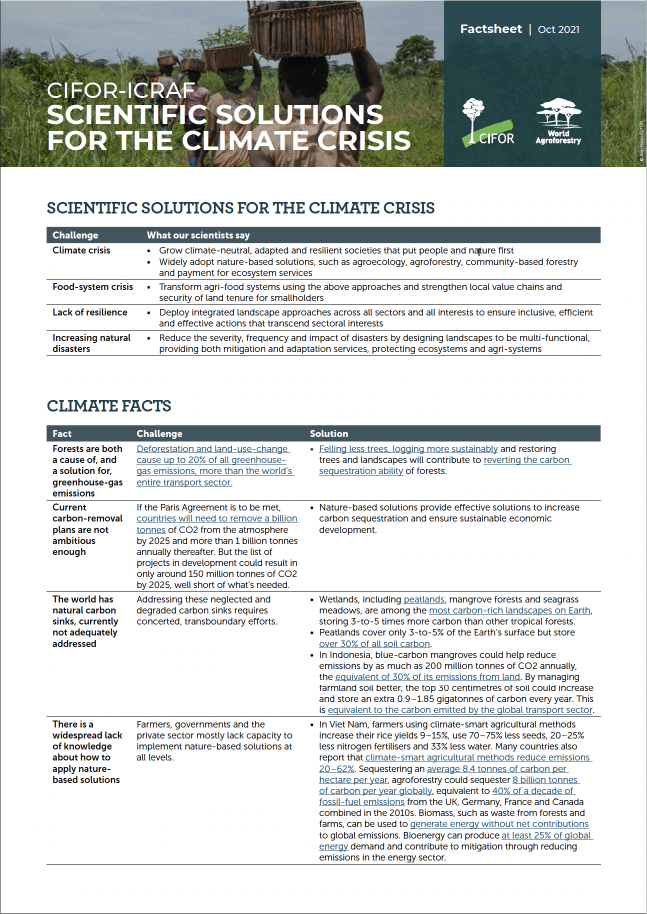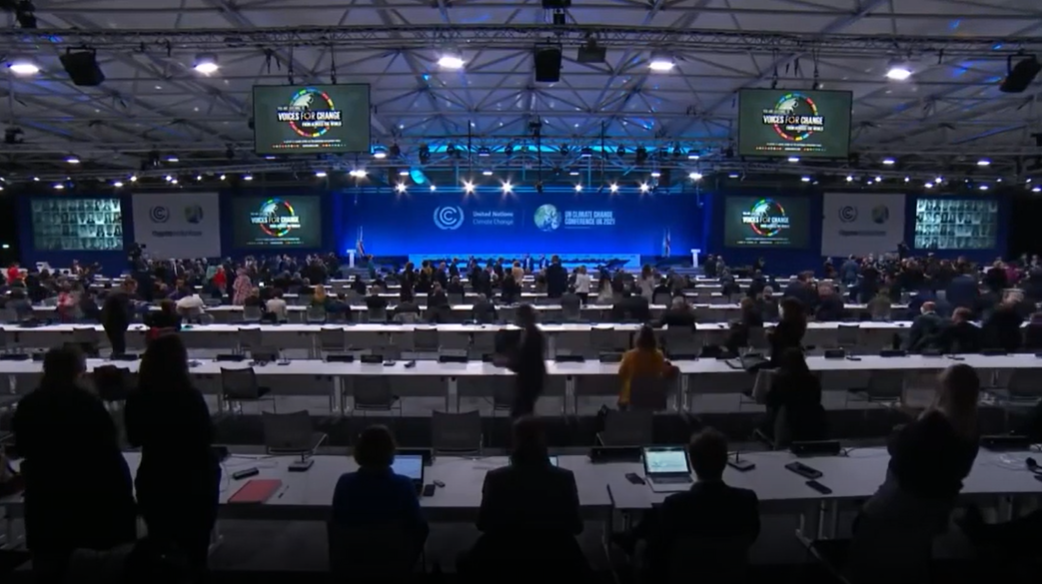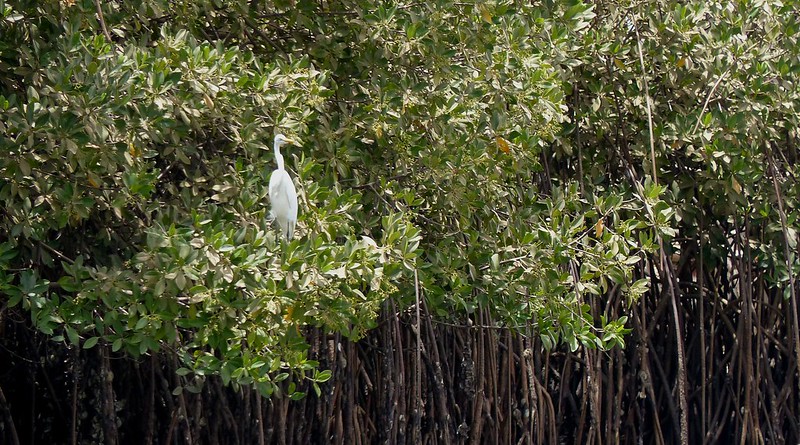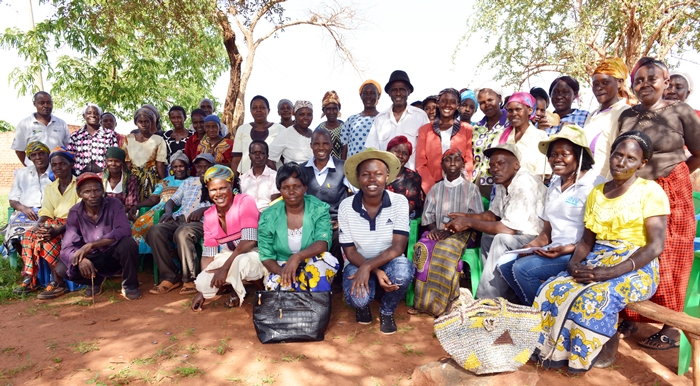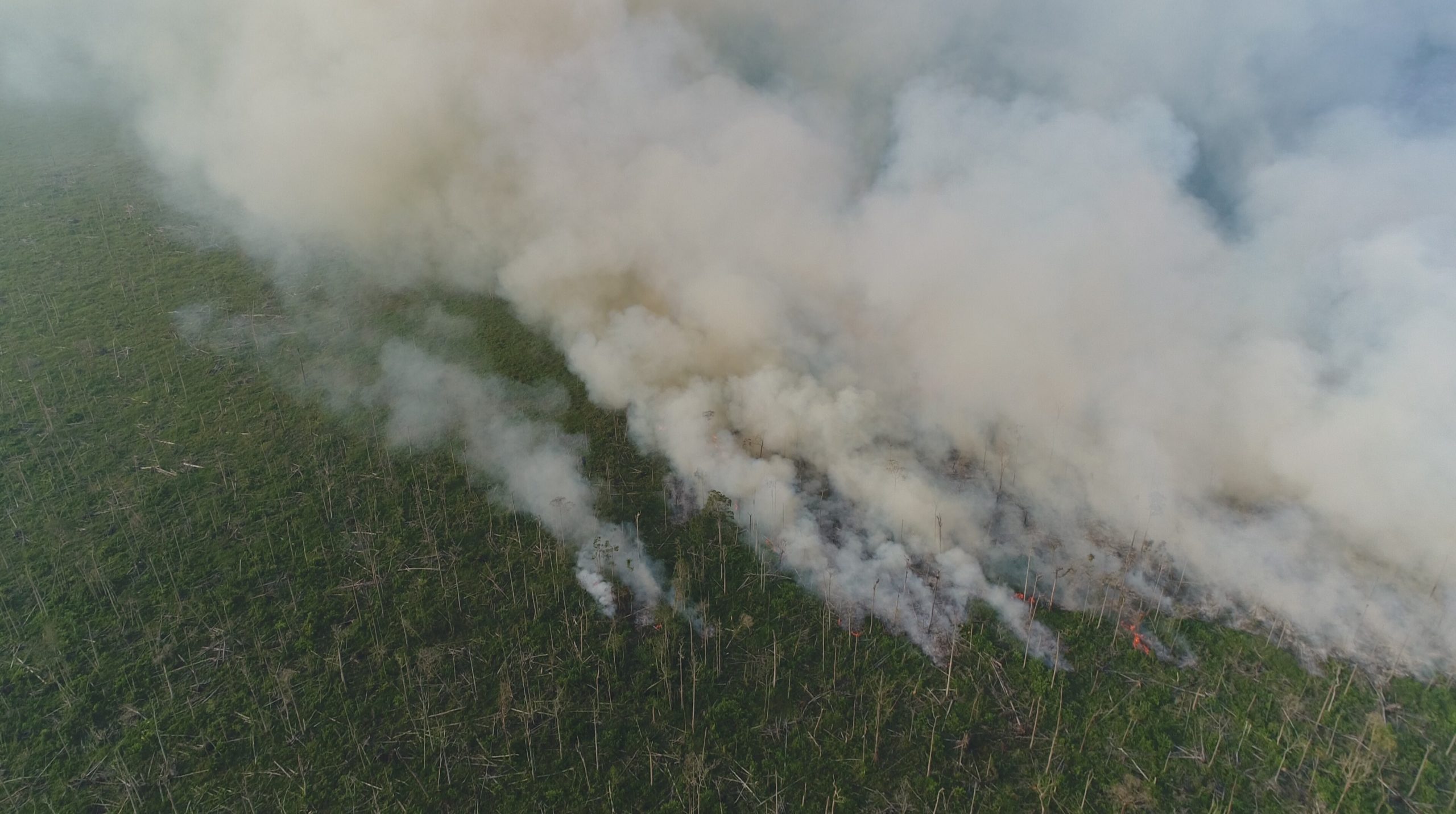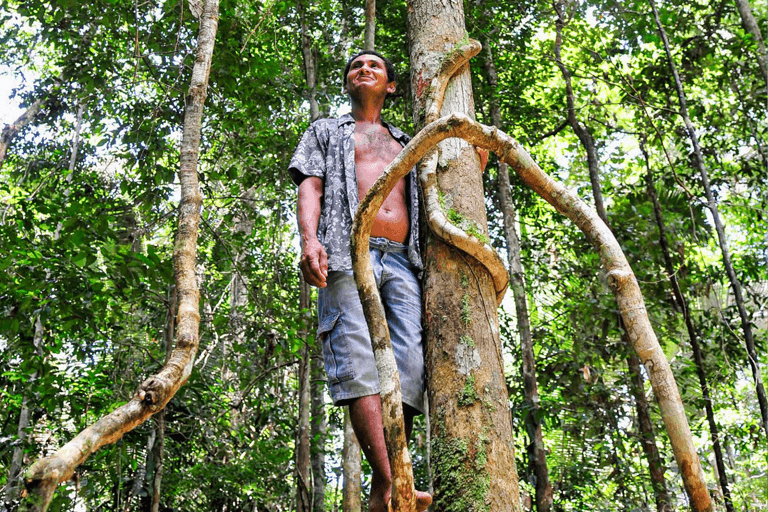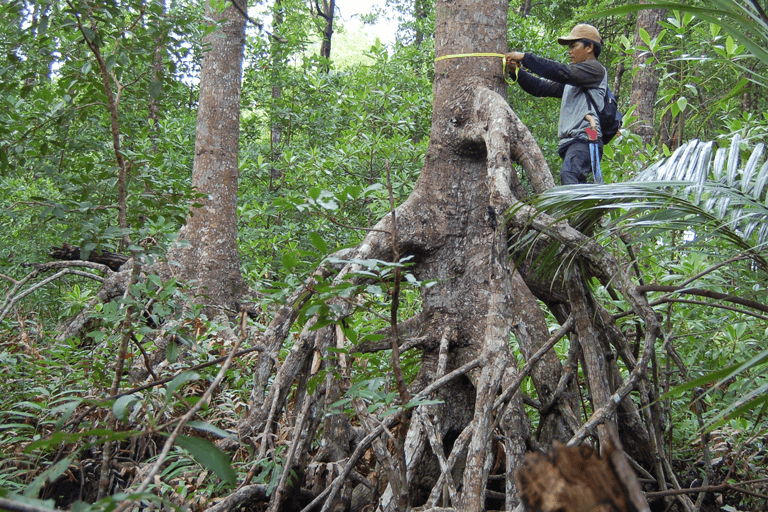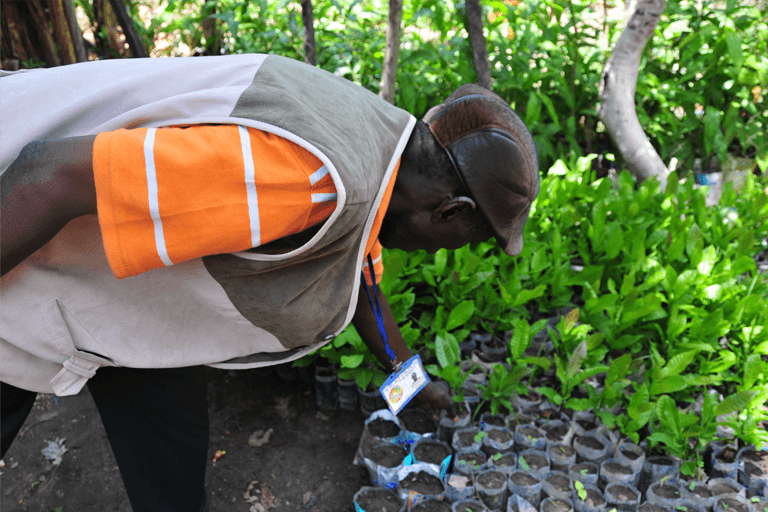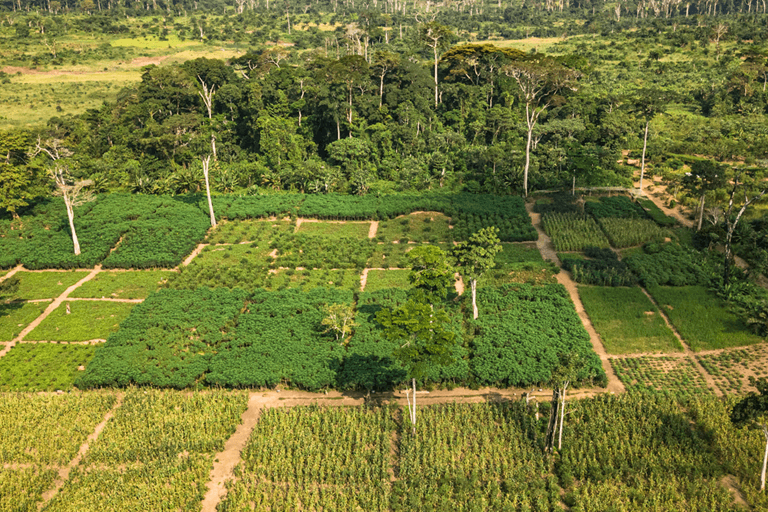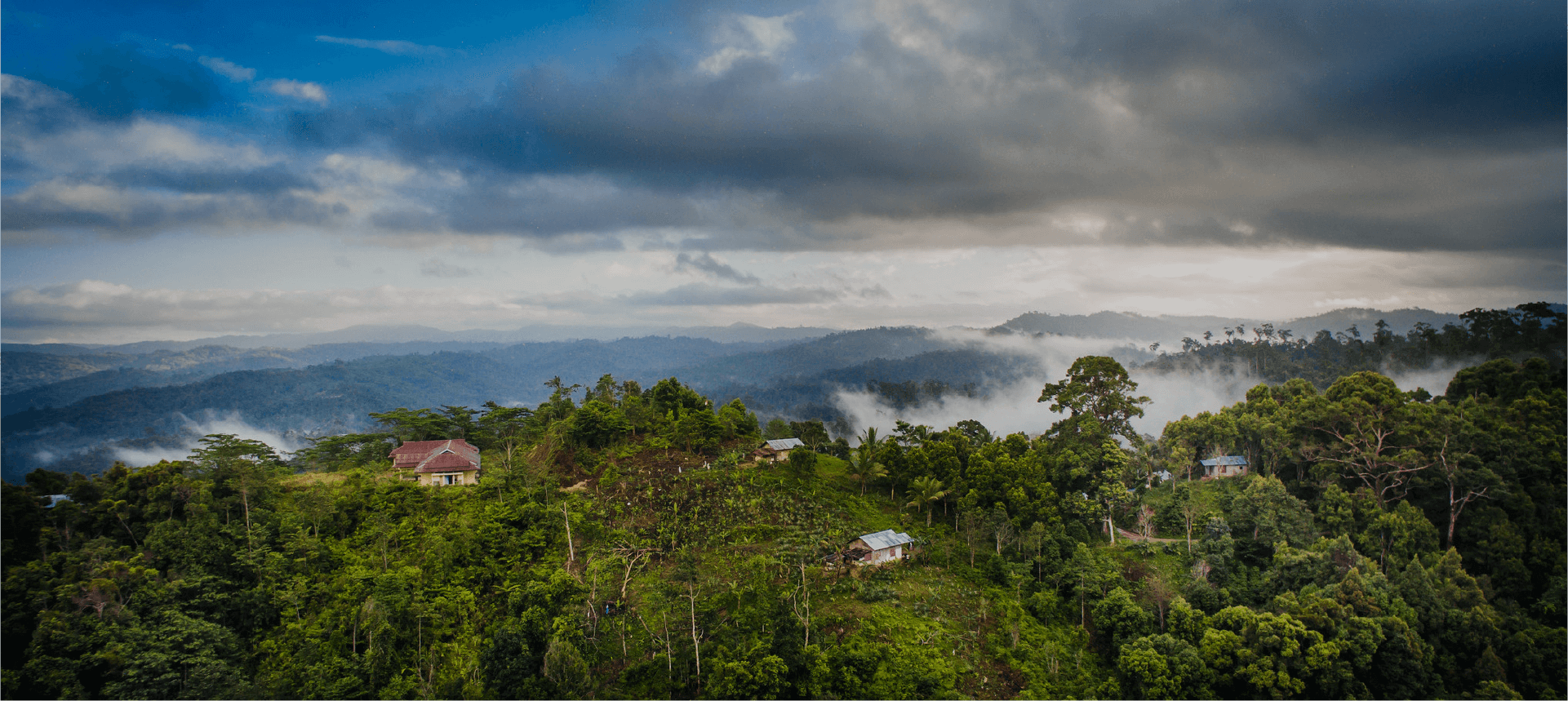
CIFOR-ICRAF at COP 26
People and nature together can reverse the damage to our planet
A sharper focus: CIFOR-ICRAF concrete actions on climate change
COP26 pledges can put a dent in the uptick in global temperatures but are not on track to fully restrict them from rising above the 1.5 degree Celsius mark.
If all pledges and policies are met by 2030, the world is still on course to reach average annual temperatures of 2.4 degrees Celsius by 2100 compared to pre-industrial times, according to Climate Action Tracker, which projects a range of variables, some of which are more positive, but the best-case scenario is 1.8 degrees Celsius.
Deforestation and agriculture featured among the COP pledges on coal, methane, emissions, cars, finance and from banks on financing.
An agreement made by more than 130 countries in a joint statement to halt and reverse deforestation and land degradation by the end of the decade is supported by $19 billion in public and private funds, covers more than 90 percent of forests worldwide, equivalent to 3.7 billion hectares. It includes the key tropical forests of Brazil, Democratic Republic of Congo and Indonesia, although the country’s environment minister has already expressed dissatisfaction with the commitment.
With a quarter of greenhouse gas emissions originating in agriculture, forestry and other land- use, 45 governments pledged at COP26 to protect nature and change farming practices to make them more sustainable. The pledge includes investments to help build resilience to extreme weather.
Farmers are on the frontlines of the fight against climate change and urgent action on land use is needed as demand for food grows. Deforestation, degraded soils and ecosystems have negative consequences for production, curtailing the livelihoods of farmers.
CIFOR-ICRAF scientists have been working on mitigation, adaptation and integrated strategies for people and nature for almost 70 years. Learn more about some of the nature-based solutions that have been effectively implemented, not only to address the climate challenge, but also to achieve broader ecosystem benefits.
Highlights
Meet our scientists
2 Nov
Indonesia Pavilion
Learning from the Site: Contribution of Gender in Strengthening Environmental and Forestry Standards
LOCATION
Hybrid: Manggala Wanabakti Auditorium, JakartaWhen discussing gender issues, many development practitioners and social movement activists pay attention to the gaps that exist between men and women. Gaps in terms of rights; responsibilities; access and control over natural resources; and decision-making within the family, in the community and at the national level. Men and women often have different priorities and choices regarding development, which affect – and are affected by – development activities. Understanding gender issues enables activity organizers and intervention implementers to build capacity to deal with the impacts of inequality and ensure sustainable development.
Peatlands Pavilion
Importance of Sustainable Management in the ASEAN Region in Contributing to Global Climate Change Mitigation
LOCATION
VirtualPEATLANDS PAVILION
Peatlands restoration for greater resilience and adaptation
Hosted by CIFOR-ICRAF, USFS
LOCATION
VirtualPeatlands exist on every continent except Antarctica, and they form in a huge variety of conditions – from the warm tropics to cold circumpolar regions. Peatlands in the Northern Hemisphere cover around 3.6 million square kilometers and contain between 400 and 600 gigatons of carbon, while tropical peatlands cover around 0.4 million square kilometers,with a carbon pool of 80 to 90 gigatons.
3 Nov
Indonesia Pavilion
Achieving Indonesia Net Sink FOLU 2030 Through Forest Restoration and The Community Livelihood Improvement Programme
LOCATION
Physical: Manggala Wanabakti, IndonesiaAs a country that is vulnerable to the impact of climate change and contributes to global greenhouse-gas emissions, Indonesia is highly committed to reduce its emissions. The Government of Indonesia has established a Long-Term Low Carbon and Climate Resilience Strategy through the LTS-LCCR 2050 document.
INDONESIA PAVILION
Towards Indonesia FOLU net sink 2030 and recovering national economic through mangrove rehabilitation
LOCATION
Physical: Manggala Wanabakti, IndonesiaPeatlands Pavilion
Restoration and management of peatlands in South Sumatra: science, policy and practice
Hosted by CIFOR-ICRAF
LOCATION
VirtualPeatlands are highly diverse terrestrial wetland ecosystems that provide multiple ecosystem goods and services, and play a huge role in carbon sequestration, water storage and habitat provision for flora and fauna. They also provide tangible products – including food, medicine, and timber – that help to sustain human livelihoods.
EUROPEAN PAVILION
Clean energy transition in Serbia and the Balkan region: biomass, renewables, land restoration and green jobs
Hosted by CIFOR-ICRAF, Resilient Landscapes
LOCATION
HybridSerbia, an EU candidate, seeks to reduce its reliance on coal for energy and heating. Massive emission reductions are sought through greater use of biomass, solar, wind and hydropower to improve air quality, restore land, and create green jobs. The Autonomous Province of Vojvodina in Serbia is a regional breadbasket, with large tracts of fertile, flat land. However, rural poverty is increasing, soils often show signs of degradation, and agricultural production is deteriorating.
Peatlands Pavilion
Towards a climate-adapted Southeast Asia through Integrated Peatland Management
Hosted by CIFOR-ICRAF, MAHFSA
LOCATION
VirtualCombating transboundary haze pollution and peatland fires requires action by both government and non-state actors. Collaboration is critical in tackling the root causes of peatland fires; in ASEAN member states, non-state actors have made important contributions to tackling peatland fires as climate change mitigation measures.
European Pavilion
Why nature-based solutions are crucial for climate and resilience
Hosted by Global Gender and Climate Alliance
LOCATION
Hybrid: Brussels Studio – Brussels Bloom Hotel, BrusselsThis session hosted at the EU Pavilion at COP26 will present concrete experience from the field from EU GCCA+ and partners. It will explore evidence and experiences from the field on what nature-based solutions, notably restoration and Sustainable Integrated Land Management, bring as climate, environmental, economic and social benefits, and to whom.
WWF Pavilion
From the ground up: soil health for climate change mitigation, resilience and food system transformation
Hosted by CIFOR-ICRAF, IICA, UNCCD, wbcsd, WWF, Aliance Biodiversity International and CIAT
LOCATION
Hybrid: Blue zone, PandaHub & OnlineDespite the multiple proven benefits that improved soil health provides – not only for food security and farmers´ livelihoods, but also for climate resilience and greenhouse gas mitigation – significant challenges remain to advancing action on the ground. Coordinated contributions from multiple stakeholders are vital for halting and reversing the degradation that is currently occurring on over a third of the Earth´s surface and affecting 3.2 billion people.
UNFCCC main side event
Putting farmers first for fair resilience in cocoa: a debate with farmers, industry, and science
Hosted by Fair Trade
LOCATION
Physical: Loch LomondThe cocoa sector faces a number of challenges related to climate change and sustainability. A changing climate means that given current trends, many cocoa-growing regions will be too hot for cocoa trees to survive by 2050. The cocoa sector is contributing to making this problem worse, through the ongoing challenges around deforestation in cocoa-growing areas.
4 Nov
UNFCCC Main Side Event
Scaling and financing ecosystem-based adaptation
Hosted by CIFOR-ICRAF, Watershed Organization Trust, Ashoka Trust for Research in Ecology and Environment, TMG Think Tank For Sustainability, AuctusESG
LOCATION
Hybrid: South Downs (Multimedia Studio 1)5 Nov
LOCATION
Physical: Bute HallLOCATION
VirtualLOCATION
VirtualIndonesia Pavilion
Knowledge platform fits for all: An all-in-one solution to exchange information on tropical peatlands
Hosted by ITPC
LOCATION
Physical: GlasgowGLF Climate
Papua New Guinea: Sustaining Forests for Climate, People and Nature
Hosted by Resilient Landscapes
LOCATION
Virtual6 Nov
As developing countries come on the cross-roads of economic growth while attempting to mitigate climate change, it is important to note the co-benefits that can be achieved by implementing nature-based solutions that are scientifically vetted as well as socially appropriate. The panel presents such co-benefits to make a strong case to implement NbS for meeting NDCs targets.
LOCATION
Hybrid: online and GlasgowThe Congo Basin contains 10% of the world’s biodiversity and is one of the largest remaining areas of continuous tropical forest on the planet. Its resources enable it to store carbon, thereby helping to mitigate the effects of climate change. Reducing deforestation acts as a mitigation strategy, as forest conservation helps maintain precipitation and regulate local, regional, and global water flows and climates.
UNFCCC Main Side Event
CPF High-level Dialogue: Upscaling Actions to Turn the Tide on Deforestation
Hosted by UNFCCC
LOCATION
Physical: Loch Lomond7 Nov
GLF Climate
Development of Community-Based Biomass Power Generation and Land Restoration with Bamboo in Timor Island, Indonesia
Hosted by CIFOR-ICRAF, INBAR, CleanPower Indonesia, Korea Forest Service
LOCATION
VirtualLOCATION
Virtual8 Nov
Introducing the Global Soil Health Programme – Restoring the health of the world’s soil at scale and on time
Hosted by UNFCCC
LOCATION
Kelvin Gallery, University of Glasgow and onlineCarbon sequestration in soil offers both globally significant potential to reduce atmospheric carbon, and the opportunity to improve soil health to deliver additional water security and biodiversity benefits. This is within a context where, on current trajectories, up to 90% of the planet’s soil – upon which we rely for food production and water management – will be degraded by 2050.
9 Nov
IFAD PAVILION
Call to Action: Recognizing women’s land rights as critical pillar for strengthening resilience to climate change
LOCATION
Physical: GlasgowThis event is a call to action to contribute to ongoing efforts to improve the recognition and realization of women’s land rights as fundamental to improve the wellbeing of women and children. Addressing existing barriers, will allow for positive synergies in achieving climate-land-gender outcomes that lead to effective implementation of key climate change policies for promoting gender equality and access to land.
Peatlands Pavilion
Managing Carbon-rich Peatlands: from Research to Policy and Action
Hosted by CIFOR-ICRAF
LOCATION
Hybrid: Glasgow and onlineTropical peatlands are storehouse of terrestrial carbon currently under different levels of pressure depending on the drivers and policy environment. Evidence-based policies require information almost in real-time fashion. New knowledge should be communicated in timely manner to mitigate the impact. On the other hand, policy-relevant research agenda often either miss the challenges or too long to deliver. Therefore, continued dialogued across the regions and among stakeholders should be encouraged to support appropriate actions.
Water and Climate Pavilion
Integrated land and water solutions for agricultural climate change mitigation
LOCATION
HybridAlthough carbon cycle stability is crucial for soil fertility and biodiversity, between 20-60% of carbon stocks historically stored in soil organic matter as active components have been lost since soil cultivation began – mainly due to changes in land use and land management. With over 40% of the Earth’s surface degraded, impacting over 3.2 billion people (IPBES 2018), continuing with business-as-usual is not an option.
PEATLANDS PAVILION
New advances in monitoring peatlands – Standardising what we measure where
LOCATION
VirtualThis session brings together work by CIFOR on criteria and indicators for peatland monitoring with work by the Global Peatlands Initiative to establish core outcomes that should be measured where possible for effective peatland monitoring and research. By standardizing what is measured across projects and countries for different types of peatlands, it will be possible to synthesis findings to develop more evidence-based policy and practice.
LOCATION
VirtualAs changing climates affect farming conditions across the world, how can geospatial and remote sensing tools help IFAD and others decide on where adaptation investments are best needed and what impact these interventions will have? Considering such issues will be representatives from the Government of Indonesia and IFAD’s Senior Management; to be followed by a “ShareFair” – a virtual ideas marketplace – where participants will learn more about geospatial tools for targeting, assessing vulnerability, and accessing geodata; and their real life applications on, for example, pasture conditions in Kyrgyzstan, vulnerability assessments in Yemen, and soil erosion in Lesotho.
10 Nov
Indonesia Pavilion
Sustainable trade and peatland management for emissions reduction and community livelihoods
Hosted by CIFOR-ICRAF, UNEP, WCMC
LOCATION
Hybrid: Auditorium Manggala Wanabakti, JakartaTropical forests play critical role in global climate cycle. However, most of these forests have been degraded and deforested driven by the development of the agricultural sector that involving the drainage of peatlands, forest conversion, and burning for land clearing (Austin et al. 2019, Dohong et al. 2017). This often associated with oil palm plantation establishment (Glauber and Gunawan, 2016; Purnomo et al., 2019), in which its expansion is driven by the demand on local and global trade (Henders et al. 2015; Rulli et al. 2019). While win-win solutions are available to reconcile the development and make the palm oil sector more sustainable (Purnomo et al. 2020), impact associated with its practices on peatland, especially when involving peat drainage, has to be remediated to prevent further release of emission.
“4 per 1000” Initiative Day – High-level segment
Hosted by 4 per 1000
LOCATION
Royal Concert Hall, Exhibition HallPeatland Pavilion
Governance frameworks for peatland conservation and sustainable management in the Congo Basin
LOCATION
HybridThe Cuvette Centrale peatlands of the Congo Basin have recently received international attention, as updated estimates of their expanse have seen them deemed the largest continuous area of tropical peatland in the world. They are located in the transboundary area of the Democratic Republic of the Congo and the Republic of the Congo.
The Commonwealth Secretariat’s approach on mainstreaming gender into climate change action, through its Commonwealth Climate Finance Access Hub (CCFAH), includes supporting member countries in the development of funding proposals which integrate youth analysis and gender action plans, aimed at delivering gender-responsive actions in their implementation. The CCFAH also provides technical assistance to support the accreditation process of eligible national entities to international climate financing institutions.
Indonesia Pavilion
South-South cooperation and lessons learned from Indonesia: corrective actions on its national agenda
Hosted by ITPC
LOCATION
Physical: GlasgowWith over 15 million hectares of tropical peatlands, Indonesia has extensive experience and a multitude of lessons learned about the management of these critical ecosystems. Many mistakes have been made in the exploitation of Indonesia’s peatlands and forests. As such, the country’s history of peatlands management serves as an important cautionary tale for the governments of other peatland-rich countries such as the Democratic Republic of Congo, Republic of Congo, and Peru.
UNFCCC Main Side Event
Thriving together: how strong alliances achieve climate resilient landscapes
Hosted by Rainforest Alliance, IUFRO, Wildlife Conservation Society (WCS)
LOCATION
Physical: South Downs (Multimedia Studio 1)11 Nov
The impacts of climate change on agriculture depend on local contexts and farmers’ conditions. Investing in communities’ own capacities to experiment with innovations and share knowledge can help the sector to address this complexity and respond to shocks. Parallel investments in grassroot capacities, partnership, knowledge networks, and digital innovations can also help to mitigate these impacts at scale.
UNFCCC MAIN SIDE EVENT
Fair and equitable REDD+ finance and benefit-sharing mechanisms for climate goals and justice
Hosted by CIFOR-ICRAF, Öko-Institut e.V., University of Helsinki, Wageningen University
LOCATION
Physical: Lomond AuditoriumGiven the current emphasis on REDD+ results-based finance, transparency and accountability are particularly important. This event discusses opportunities and challenges that enable and hinder an effective, efficient and equitable implementation of REDD+, with particular focus on finance and benefit-sharing schemes.
12 Nov
Commonwealth Pavilion
Transparency in agriculture: can we align country adaptation reporting efforts under the Paris Agreement and Agenda 2030?
LOCATION
VirtualIn 2015, the Paris Agreement (PA) and Agenda 2030 were adopted to shape the global response to climate change and sustainable development. This event aims to demonstrate, and interactively discuss, the potential alignment of reporting on adaptation under the PA Enhanced Transparency Framework (ETF) and the Sustainable Development Goals (SDGs).
Dapatkan berita CIFOR-ICRAF terbaru
Subscribe to our newsletter to stay up-to-date on insights, events and new solutions.
You can unsubscribe at any time.










